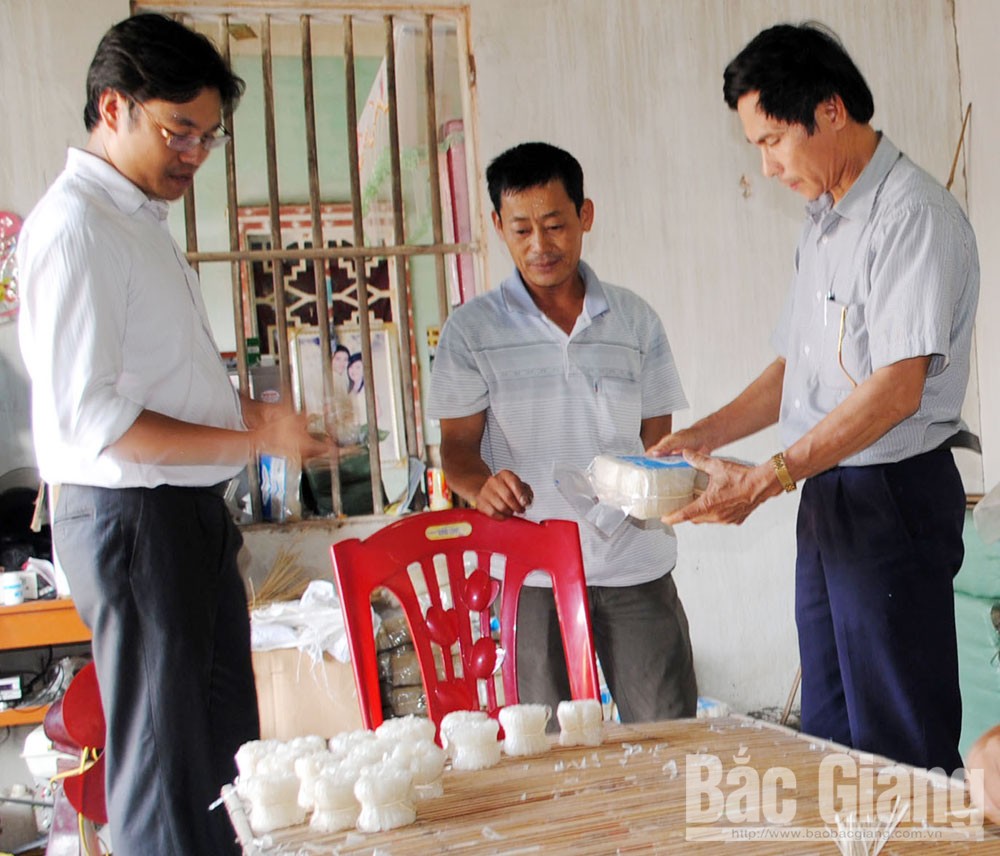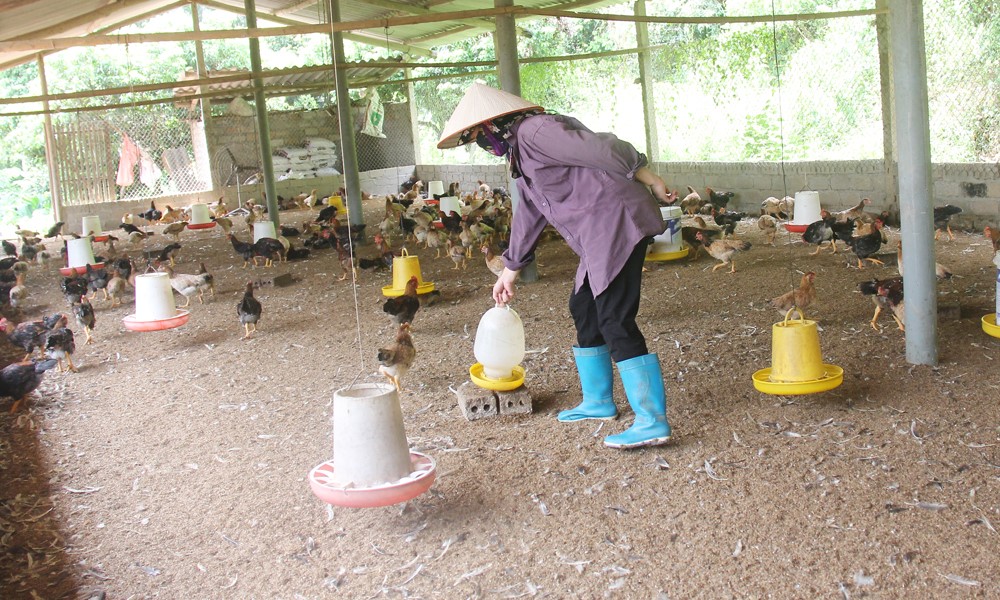Increasing income thanks to preferential loans from National Employment Fund
Support policies
Decree 61/2015 / ND-CP dated July 9, 2015 of the Government regulating the management of the National Employment Fund (hereinafter referred to as the Fund).
The provincial People's Committees and central agencies of organizations which implement the programme are tasked to manage and use funds from the Fund in line with this Decree. The Vietnam Bank for Social Policies is assigned to manage and provide loans from the Fund according to the provisions of the Decree.
 |
|
Tu Van Thu (middle) in Nhap Thanh village, Nghia Ho commune (Luc Ngan district) develops noodle making from preferential loans of the National Employment Fund. |
Those entitled to the Fund’s loans include small and medium-sized enterprises, cooperatives, cooperative groups, business households (hereinafter referred to as production and business establishments) and laborers.
For production and business establishments, the maximum loan for a project is 1 billion VND (42,900 USD) and not more than 50 million VND (2,146 USD) for an employee who is provided with job. For workers, the maximum loan is 50 million VND.
Loan term is no more than 60 months. In specific cases, maybe the Bank for Social Policies and the borrowers can compromise based on capital sources, production and business cycles and debt payment capability of borrowers.
In terms of loan interest rates, for production or business establishments or laborers, the interest rates will be equal to those applicable to poor households according to each period prescribed by the Prime Minister.
For production and business establishments employing a large number of people with disabilities and ethnic minorities; ethnic minority people living in extremely difficult areas and people with disabilities are entitled to interest rates equal to half of those for poor households.
With a loan of over 50 million VND from the Fund, production and business establishments must have properties as security for loans according to the provisions of law.
Workers and production and business establishments that need to borrow money from the Fund should set up loan documents and send them to branches or transaction offices of the Vietnam Bank for Social Policies in localities (generally called local Bank for Social Policies) where the projects are implemented.
Effectiveness from preferential loans
With capital added and recovered annually from the Fund, the provincial Department of Labor, Invalids and Social Affairs (MOLISA) has actively coordinated with the Vietnam Bank of Social Policies’ provincial branch and the provincial Departments of Finance, and Planning and Investment, localities, mass organizations (Labor Union, Women's Union, Farmer's Union, Youth Union, Veterans’ Association, Cooperative Alliance ...) in devising plans, implementing and supervising the use of loans so that the loans are used effectively in line with regulations and objectives of the programme.
It has focused on disseminating and guiding households and production and business establishments in need of investment capital to expand business production, attract and create jobs for laborers.
At the same time, the Department of Labor, Invalids and Social Affairs cooperated with the Vietnam Bank of Social Policies’ provincial branch and relevant agencies and units to inspect and supervise the implementation of projects funded by the Fund; determine the responsibilities of the parties as well as evaluate and summarize experience to ensure the objectives of the programme as prescribed.
Deploying the preferential loan support programme from the Fund, the Vietnam Bank of Social Policies’ provincial branch has actively supported completion of procedures, and facilitated disbursement of capital for households and production and business establishments to expand production and create new jobs.
As a result, from 2017 to the end of the first quarter of 2019, the total debt balance reached more than 264 billion VND (11.3 million USD), provided for nearly 2,000 projects, contributing to generating, maintaining and expanding jobs for more than 6,000 workers. Of these, most are female workers, people with disabilities and ethnic minorities.
Projects getting loans mainly create jobs for laborers to develop agricultural economic models, handicrafts, mechanics, carpentry, knitting, cattle and poultry breeding, and aquaculture.
Lending activities from the National Employment Fund have contributed to supporting households and production and business establishments, as well as helping laborers, especially rural ones, to change their production thinking, thus increasing income, contributing to economic restructuring in the locality, and creating stable jobs for a part of unemployed laborers.
Ha Phuong
 Bắc giang
Bắc giang














Reader's comments (0)